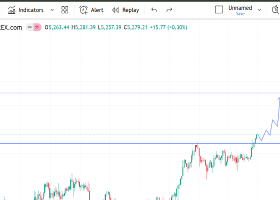Italy began an general strike at the call of two large unions to protest the rapid pace of economic and social reform introduced by premier Matteo Renzi. The main target of complaint is the Renzi-supported “Jobs Act,” which seeks to stimulate job creation and new hiring by making it easier for companies to lay employees off, and cutting labor security and severance rights during the first several years of a worker’s contract.
The measure, known as quantitative easing, has split opinion within the ECB and among euro zone finance ministers. Supporters say it would help to revive the region’s struggling economy and opponents say it would encourage spendthrift states to borrow more.
“I think we will arrive at a (programme of) quantitative easing. It is necessary to avoid the risk, which is very high today, of falling into the dangerous trap of deflation,” Economy Minister Pier Carlo Padoan said in an interview with Italian newspaper La Stampa.
The interview was published on the same day that Jens Weidmann, head of Germany’s central bank, warned against comparing the effects of quantitative easing in the United States and Japan with its possible effect in the euro zone.
Weidmann said in an interview published in Italian newspaper La Repubblica and several other European papers that having common monetary policy but different financial policy and debt levels tempted countries to run up more debt and “dump the consequences on others.”
Padoan, who said on Dec. 5 that Europe should move towards
quantitative easing, said in Saturday’s interview the measure would be
“less effective” in Europe than in the United States, which he said had a
real single market.
-----------------
Greece’s radical leftist opposition leader, Alexis Tsipras, accused Prime Minister Antonis Samaras on Saturday of sowing fear in the country to win support for a presidential vote the government must win to avoid a snap election.
The government on Monday brought forward a vote in parliament to elect a president to this month. Its aim was to end political uncertainty that has hung over the country, but it risks having to call snap elections if the government’s candidate does not get enough votes.
Tsipras’s Syriza party, which wants to tear up Greece’s EU/IMF bailout deal, is likely to win an election, polls show, and Samaras warned on Thursday that the country risked a “catastrophic” return to the depths of its debt crisis if his government fell.
“A frenzy of fear-mongering with the responsibility of the Prime Minister himself is a final spasm before the end,” Tsipras said in a speech on the Greek island of Crete. “The countdown for the ruling coalition and its catastrophic policies has already started”.
Syriza is promising to abandon any cooperation with Greece’s EU/IMF lenders and reverse austerity cuts — spooking financial markets wary of Greece going off the path of fiscal rigour just as it puts its finances on track and returns to economic growth.
Syriza’s lead over the ruling conservatives narrowed after the government brought forward the vote, according to an Alco poll published on Saturday. Conducted on Dec. 9-12, it showed Syriza would win with 27.6 percent of the vote if parliamentary elections were held now. Samaras’s New Democracy party would get 24 percent.
In an article published on a Greek newspaper, Samaras called on lawmakers to support his nominee, saying it was their “national duty” to elect a president.
“Things have changed in Greece but there are still enough to be done for the reconstruction and confidence as far as the country’s finances are concerned,” he told weekly Proto Thema newspaper



